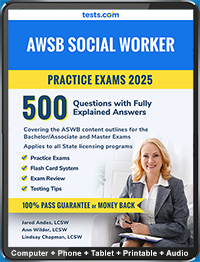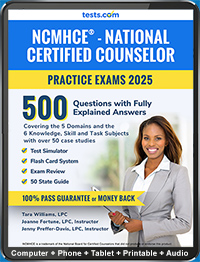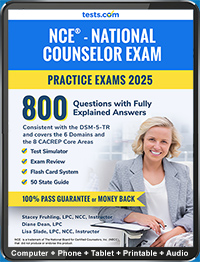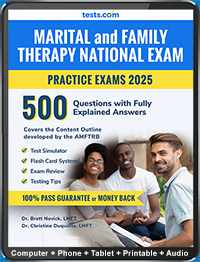2024 Edition
The field of social work is expansive and diverse. Social workers can be found in hospitals assessing patients' needs and assisting with care plans. We are in schools providing services to students and families to support successes academically and interpersonally. We work in outpatient and inpatient settings providing psychotherapy. You may even find us in correctional and criminal justice settings assisting in supporting individuals with legal charges or providing consultation to legal professionals on social-emotional factors. We are in multifaceted roles throughout our communities in direct and indirect care roles.
Education
Before you can call yourself a social worker, there are several things you must complete starting with your education. Social workers can have varying levels of education based on the regulations set by your jurisdiction's licensing board. Many require a degree in higher education in a program that has received accreditation from the Council of Social Work Education (CSWE). Most states require a minimum of a Bachelor's Degree in Social Work (BSW); however, some states allow individuals who do not possess a social work degree to obtain licensure. Many employers prefer social workers to have a Master in Social Work (MSW) and a corresponding license to practice in more clinically based environments. Some social workers even chose to work toward a Doctor of Social Work (DSW). The level of education you obtain and your qualifying experience will determine what license you are eligible to apply for within your state.
Examination Process
Once you have applied for your license with your state's board and obtained approval, you must sit for the Association of Social Work Board's (ASWB) licensing exam to get your license in social work. The ASWB has various exams that correspond with the license you are applying for (some jurisdictions require additional testing as part of their board's requirements). These exams are administered at Pearson VUE centers and must be scheduled through the ASWB once you have registered and paid for the exam. As noted above, differing levels of education are required per jurisdiction, which corresponds with the level of licensure and category of the exam you are eligible to take. In addition, depending on your state's regulations, you may be able to sit for an exam before completing a qualified education program if you are in good standing to graduate.
The exam is based on practice analysis, meaning that the ASWB uses surveys of current social work practice in various settings to help mold the questions on the exam. Each exam contains 170 questions; however, only 150 are counted towards your final score (20 are potential questions for future exam versions that are being tested out). The exam is pass/fail. Exam questions differ from one exam to the next and have varying difficulty levels. Because of this, the number of questions needed to pass varies slightly on each version. Each question in the exam is multiple choice and will have three or four options for you to choose from. The questions will be a mix of the following:
Recall: These questions will require you to remember information you learned/studied to answer the question correctly.
Application: These questions entail using the information you have learned/studied in approaching a situation.
Reasoning: These questions will require you to look back on the information you learned/studied and consider how the information pertaining to the question/scenario should be considered in choosing your answer.
You have 240 minutes to complete the exam; however, many individuals only need half that time. At the completion of the exam, you will be asked to complete a brief survey, and then you will receive your unofficial score report. There are four categories of examination with the ASWB; Associate/Bachelor, Master, Advanced Generalist, and Clinical.
Associates/Bachelors Level Exam:
This exam is for individuals seeking Associates’/Bachelor's level licensure in their state. Individuals without a social work degree may sit for this exam to seek associates level licensure in jurisdictions with this allowance. States that allow this license may have additional requirements before obtaining licensure. Individuals seeking bachelor's level licensure are required to have a bachelor's degree in social work to sit for the exam, allowing individuals to obtain a generalist practice license within their state. The exams content areas are broken down as follows:
Masters Level Exam:
Individuals with a master's in social work may sit for the master's level exam. This exam allows individuals to obtain an advanced license that allows for work in the application of specialized knowledge and advanced practice skills. The content areas are broken down as follows:
Advanced Level Exams
Many Social workers practicing at the master’s level choose to continue and obtain their advanced generalist or advanced clinical licensure. After completing a minimum of two years of experience in a social work setting (some jurisdictions may identify other requirements), you can consider this next level of licensure. Each jurisdiction will also define different requirements to include ongoing supervision by a board-approved social worker supervisor.
Advanced Generalist Exam:
Individuals working in non-clinical settings may choose to seek the advanced generalist pathway. These settings may include advocacy, grant writing, community organization, health and wellness promotion, case management, administration, and other macro-level positions. The advanced generalist exam content areas are broken down as follows:
Advanced Clinical Exam:
Individuals in clinical settings may choose the advanced clinical pathway. These settings often include direct care and involve assessment, diagnosing, and treating mental health and substance use issues, in addition to providing psychotherapy in individual, group, and family settings. The advanced clinical exam content areas are broken down as follows:
Whether you obtain an advanced generalist or advanced clinical licensure, achieving this milestone allows you to further your career and practice independently. Many social workers go on to leadership roles in organizations, including supervisors, managers, and clinical directors, and some choose to open up their own clinical practices.
Obtaining your License
Once you pass the exam, your state's social work board will obtain your official results from the ASWB/Pearson VUE within two weeks of your examination. Once received, depending on your jurisdiction's requirements, you may need to pay an additional fee to obtain your official license from your state's board. In addition, each state has a verification process that often includes an assigned license number so potential employers can validate your license with the board.
Depending on the license you obtained and the jurisdiction you reside in, the requirements for maintaining your license will include ongoing continuing education, supervision, and renewals. Each state board will identify these requirements and expectations when you are issued your license and provide updates as applicable.
Your license proves your commitment to the Code of Social Work Ethics and validates your education and experience. In addition, maintaining your license assures you are always learning, and educating yourself about new laws, regulations, and interventions that can be used to best support those in our communities and truly help them on their journey.
Social Worker Licensing Guide
Social workers, at their core, are helpers. We are driven in our daily lives to help individuals and communities by assisting in improving systems, providing advocacy and support, and striving to improve the lives of those we serve. Often individuals that enter this field have a passion for helping others.The field of social work is expansive and diverse. Social workers can be found in hospitals assessing patients' needs and assisting with care plans. We are in schools providing services to students and families to support successes academically and interpersonally. We work in outpatient and inpatient settings providing psychotherapy. You may even find us in correctional and criminal justice settings assisting in supporting individuals with legal charges or providing consultation to legal professionals on social-emotional factors. We are in multifaceted roles throughout our communities in direct and indirect care roles.
Education
Before you can call yourself a social worker, there are several things you must complete starting with your education. Social workers can have varying levels of education based on the regulations set by your jurisdiction's licensing board. Many require a degree in higher education in a program that has received accreditation from the Council of Social Work Education (CSWE). Most states require a minimum of a Bachelor's Degree in Social Work (BSW); however, some states allow individuals who do not possess a social work degree to obtain licensure. Many employers prefer social workers to have a Master in Social Work (MSW) and a corresponding license to practice in more clinically based environments. Some social workers even chose to work toward a Doctor of Social Work (DSW). The level of education you obtain and your qualifying experience will determine what license you are eligible to apply for within your state.
Examination Process
Once you have applied for your license with your state's board and obtained approval, you must sit for the Association of Social Work Board's (ASWB) licensing exam to get your license in social work. The ASWB has various exams that correspond with the license you are applying for (some jurisdictions require additional testing as part of their board's requirements). These exams are administered at Pearson VUE centers and must be scheduled through the ASWB once you have registered and paid for the exam. As noted above, differing levels of education are required per jurisdiction, which corresponds with the level of licensure and category of the exam you are eligible to take. In addition, depending on your state's regulations, you may be able to sit for an exam before completing a qualified education program if you are in good standing to graduate.
The exam is based on practice analysis, meaning that the ASWB uses surveys of current social work practice in various settings to help mold the questions on the exam. Each exam contains 170 questions; however, only 150 are counted towards your final score (20 are potential questions for future exam versions that are being tested out). The exam is pass/fail. Exam questions differ from one exam to the next and have varying difficulty levels. Because of this, the number of questions needed to pass varies slightly on each version. Each question in the exam is multiple choice and will have three or four options for you to choose from. The questions will be a mix of the following:
Recall: These questions will require you to remember information you learned/studied to answer the question correctly.
Application: These questions entail using the information you have learned/studied in approaching a situation.
Reasoning: These questions will require you to look back on the information you learned/studied and consider how the information pertaining to the question/scenario should be considered in choosing your answer.
You have 240 minutes to complete the exam; however, many individuals only need half that time. At the completion of the exam, you will be asked to complete a brief survey, and then you will receive your unofficial score report. There are four categories of examination with the ASWB; Associate/Bachelor, Master, Advanced Generalist, and Clinical.
Associates/Bachelors Level Exam:
This exam is for individuals seeking Associates’/Bachelor's level licensure in their state. Individuals without a social work degree may sit for this exam to seek associates level licensure in jurisdictions with this allowance. States that allow this license may have additional requirements before obtaining licensure. Individuals seeking bachelor's level licensure are required to have a bachelor's degree in social work to sit for the exam, allowing individuals to obtain a generalist practice license within their state. The exams content areas are broken down as follows:
- Human development including diversity and behavior in the environment (25%)
- Assessment to include biopsychosocial history, assessment methods and techniques, and concepts related to abuse and neglect (29%)
- Interventions with clients and client systems, including questions on crisis, intervention processes, the use of collaborative relationships, and documentation (26%)
- Professional relationships, values, and ethics (20%)
Masters Level Exam:
Individuals with a master's in social work may sit for the master's level exam. This exam allows individuals to obtain an advanced license that allows for work in the application of specialized knowledge and advanced practice skills. The content areas are broken down as follows:
- Human development including diversity and behavior in the environment (27%)
- Assessment and intervention planning to include biopsychosocial history, assessment methods and techniques, and intervention planning (24%)
- Interventions with clients and client systems, including processes and techniques across systems (24%)
- Professional relationships, values, and ethics (25%)
Advanced Level Exams
Many Social workers practicing at the master’s level choose to continue and obtain their advanced generalist or advanced clinical licensure. After completing a minimum of two years of experience in a social work setting (some jurisdictions may identify other requirements), you can consider this next level of licensure. Each jurisdiction will also define different requirements to include ongoing supervision by a board-approved social worker supervisor.
Advanced Generalist Exam:
Individuals working in non-clinical settings may choose to seek the advanced generalist pathway. These settings may include advocacy, grant writing, community organization, health and wellness promotion, case management, administration, and other macro-level positions. The advanced generalist exam content areas are broken down as follows:
- Human development, diversity/behavior in the environment (23%)
- Intervention processes along with techniques for use across systems (32%)
- Intervention processes including techniques for use with larger systems (18%)
- Professional relationships, values, and ethics (27%)
Advanced Clinical Exam:
Individuals in clinical settings may choose the advanced clinical pathway. These settings often include direct care and involve assessment, diagnosing, and treating mental health and substance use issues, in addition to providing psychotherapy in individual, group, and family settings. The advanced clinical exam content areas are broken down as follows:
- Human development, diversity/behavior in the environment (24%)
- Assessment, diagnosis, along with treatment planning (30%)
- Psychotherapy, including clinical interventions and case management (27%)
- Professional relationships, values, and ethics (19%)
Whether you obtain an advanced generalist or advanced clinical licensure, achieving this milestone allows you to further your career and practice independently. Many social workers go on to leadership roles in organizations, including supervisors, managers, and clinical directors, and some choose to open up their own clinical practices.
Obtaining your License
Once you pass the exam, your state's social work board will obtain your official results from the ASWB/Pearson VUE within two weeks of your examination. Once received, depending on your jurisdiction's requirements, you may need to pay an additional fee to obtain your official license from your state's board. In addition, each state has a verification process that often includes an assigned license number so potential employers can validate your license with the board.
Depending on the license you obtained and the jurisdiction you reside in, the requirements for maintaining your license will include ongoing continuing education, supervision, and renewals. Each state board will identify these requirements and expectations when you are issued your license and provide updates as applicable.
Your license proves your commitment to the Code of Social Work Ethics and validates your education and experience. In addition, maintaining your license assures you are always learning, and educating yourself about new laws, regulations, and interventions that can be used to best support those in our communities and truly help them on their journey.







